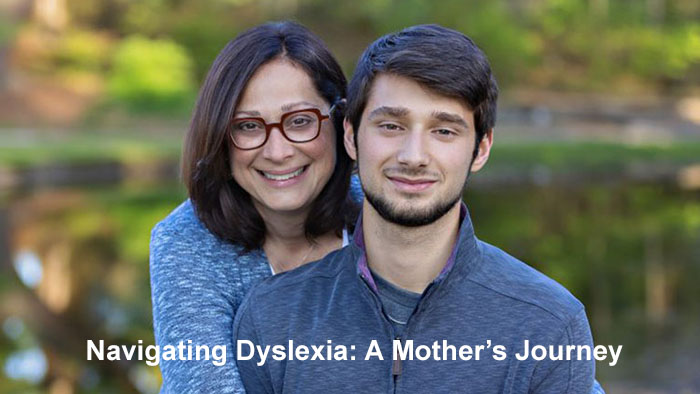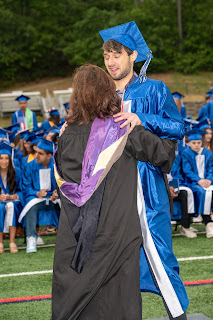4th Grade: Dyslexia Studies and ADHD
After the diagnosis, in third grade, we also started teaching Wilson what it means to be dyslexic. It was important to me that he understood the good and bad of his learning difference. It also helped him realize he was not alone and everyone has something.
One of the first things we did was participate in the Reading and Attention for Individual Student Excellence (RAISE) research study at the Gabrieli Lab in the Department of Brain and Cognitive Sciences Building at MIT. Wilson had to complete neuropsychological assessments of reading, math, memory, and language and play computer games with a researcher. I had to fill out questionnaires about his developmental history, personality, and family circumstances. In some ways, it was a lot like the first set of evaluations. However, Wilson got gift cards for participation this time, so he thought it was more fun. Wilson was also proud to help researchers learn more about how dyslexic kids read.
The program focused on learning more about how reading and attention are related in the brain. One element of the RAISE study explored the comorbidity between dyslexia and ADHD. The researchers hoped the findings would help better understand why these challenges often co-occur in struggling learners.
https://gablab.mit.edu/research-projects/brain-bases-of-reading-and-math-raise-mind/
While the study notes, "Your child may also participate in a short neurological screening with one of our staff neurologists,” Wilson was never asked. I was a little disappointed. I thought it would be cool to have a map of his brain! However, we did get contacted by the researchers to come back at the beginning of fall to look at learning loss during the summer. His first session was in late June, and it was another summer without an Extended School Year (not sure why not again this year). Wilson was tutored that summer by his first-grade teacher again. It was a big help to have someone get him to complete the summer reading and math packets. Those were painful!
Sometime around then, we also took Wilson to see “Dislecksia: The Movie” at MIT. It was another way to help him learn more about his diagnosis. The site description is accurate: “It’s a light-hearted documentary with a serious purpose. It will give viewers a better understanding of the condition itself, the problems it makes for individuals and families, and the programs that are needed to deal with it. It will help dyslexics and their families get the assistance they need. It will give them hope – as well as a crash course in how to laugh at their own condition.”
Following the film was a panel with several people, including someone from Decoding Dyslexia. It was the first time I had heard of the organization, which helped pass the dyslexia screening legislation in Massachusetts and other states.
It was also helpful for his dad to learn a little more about the joys and challenges of dyslexia. It prompted many questions about how to support Wilson best. We were worried about how much he would learn about “managing” his disabilities, whether he would catch up, want to go to college….would he do something else? While I am very pro-college, I agree that it is not for everyone and that more kids should go into the trades. However, Wilson never seemed like someone who wanted to work with his hands - I put together all of the Lego kits he got for his birthday. His path was so unclear if school wasn’t it. But after two events at MIT, he thought maybe he’d go there someday. Would the interventions and tutoring be enough?
Later that summer, Wilson’s tutor asked me if I had considered the ADHD diagnosis. It’s funny that she brought it up because she didn’t think he had it in first grade. His fidgeting was not as straightforward or as obviously ADHD as some of the other boys in her class. I could never tell if it was boy energy (I have two sisters) or something else. I had talked to his doctor about it a few times as well.
Well, the neuropsych said he had ADHD, and his tutor was noticing his lack of focus. Years ago, there would have been an attention deficit diagnosis. It was always hard to get him back on track. So, when your kid needs glasses, you get him glasses; when he needs help focusing, you get him that help.
We started Wilson on a very low dose of methylphenidate to see if it would work. Luckily, we noticed it right away. Not everyone is so lucky to get the right medication and dosage. Wilson had to do morning worksheets every day, and he typically had to be reminded many times to start the work. He definitely had trouble with prolonged attention. When I asked if his teachers noticed a difference with the medication, they said it was one of the most obvious differences. He was able to focus much better throughout the day.
Well, about a month later, I forgot to give Wilson his medicine. It was a crazy morning, and we hadn’t quite established a routine. So, with a big apology, I asked his teachers if they noticed a difference. Here’s the note from the reading specialist, “Anyway, yes, we (myself, teacher, aide) all saw a difference today - quite a difference. The 2 separate times I happened to observe him he was (1) not completing his morning work and (2) stretched across his desk fidgeting with something in his hand......my goodness, quite different from what I observed on Monday.”
It wasn't the last time we forgot. Unfortunately, the next time was one of the MCAS (Massachusetts Comprehensive Assessment System) testing. Wilson was in a separate environment, which helped some. He was also given gum and stress balls to help him focus. Gum has always been one of my go-tos. It’s funny what you learn about yourself when you are learning how to help your child. Tree, meet apple.
Luckily, that was the most exciting part of 4th grade.





Comments
Post a Comment